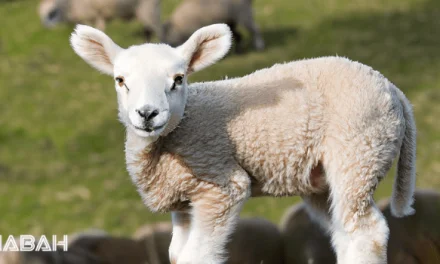Are you looking for information on whether salami is halal or haram? You’ve come to the right place!
Salami is a type of cured sausage made from different meats such as beef, pork, chicken, or turkey. Depending on the ingredients and how it’s made, salami can be either halal or haram.
In this article, we’ll discuss the halal status of salami, the ingredients used, and the process of slaughtering animals according to Islamic Law. We’ll also provide guidance on where to seek advice if you’re ever in doubt about the halal status of salami.
So, let’s get started!
What is Salami?
Salami is a delicious cured sausage that can be halal or haram depending on the source of the meat and how it’s prepared – and it’s a great way to add flavor to your favorite dishes! Salami is a type of cured sausage made from ground meat mixed with spices. The meat used in salami can be beef, pork, or other animals. It is fermented and dried, giving it a distinct flavor and texture.
Salami is often sliced thin and used in sandwiches, pizzas, and other dishes. Muslims must carefully read the labels and ingredients of salami products to ensure they are halal. Halal salami varieties include beef salami, halal turkey salami, and halal beef pepperoni, while haram salami varieties include wine salami and Genoa salami made from pork. Pepperoni, a type of spicy sausage, is typically made from beef and pork.
To ensure a halal salami, the animal must be prepared in a specific way with the name of Allah. The animal must also be healthy and free from diseases or defects. Additionally, salami must not contain any alcohol or other haram ingredients. Customers should always follow the customer reviews of the product they’re buying and make sure all the ingredients of salami are halal. Moreover, they should check if the meat is halal and the preparation process is according to Islamic laws.
Halal salami is available in the market and is a great way to add flavor to your favorite dishes. Muslims should seek guidance from Islamic scholars or reliable sources when in doubt about the halal status of salami. They should also read labels and ingredients to make sure the salami they consume is halal. With the right guidance and information about ingredients, Muslims can enjoy salami with peace of mind.
Halal Status
You should always check the source and ingredients of salami to ensure it’s halal. Halal salami must be made from halal animals that have been slaughtered according to Islamic rules and regulations. Beef salami, Halal turkey salami, and Halal beef pepperoni are some of the halal salami varieties.
According to the Quran, carrion, blood, and swine meat are haram. Therefore, salami made with pork and pig meat is haram. Horse meat is halal but undesirable to eat. The ingredients used in salami must also comply with Islamic rules and regulations. This includes avoiding pig’s meat or parts of halal animals.
Ingredients such as grains, breadcrumbs, nuts, garlic, and herbs are used for flavoring the salami. To make halal salami, a Muslim man should perform the slaughtering process and pronounce Allah at the time of slaughtering. Synthetic casings made of beef collagen, plant-based substances, or pig hides can also be used. Muslims should also be mindful of the ingredients and make sure they’re halal certified.
To ensure that the salami is halal, Muslims should adhere to Islamic guidelines and consult with Islamic scholars or reliable sources for halal certification. Muslims should also look for products that are certified by the HFSAA or other halal certification bodies.
Salami can be enjoyed by Muslims if made from halal ingredients and follow Islamic guidelines. However, it’s important for individuals to research and understand the ingredients and sources of their food to make sure they’re following the halal rules.
Halal Ingredients
When selecting ingredients for halal salami, Muslims should ensure that all components are in compliance with Islamic dietary laws. Salami is a type of cured sausage that is often made from pork, beef, chicken, or turkey. Making halal salami requires careful selection of the type of salami and the ingredients used to make it. The curing and fermenting process must also be in compliance with Islamic dietary laws.
Halal salami must be made from halal meat, such as beef, turkey, or chicken. Additionally, all other ingredients used to make salami must also be halal. These include the curing ingredients, any additives, and any flavoring agents. Halal turkey salami and premium halal beef salami are the most popular types of halal salami.
For those wishing to make their own salami, it’s important to confirm the halal certification of all ingredients used. Islamic religious scholars can provide guidance on the halal status of salami, as well as the ingredients used to make it. The importance of understanding the halal status of ingredients before selecting them can’t be overstated.
Halal salami is an important part of a balanced and healthy Muslim diet, and it’s essential to ensure that all ingredients used in the production process are in line with Islamic dietary laws. Muslims should be aware of the ingredients in any salami products they buy and seek the advice of Islamic religious scholars or reliable sources if in doubt.
Halal Slaughtering
To ensure the halal status of salami, slaughtering must follow Islamic standards. According to Islamic beliefs, salami made from pork or other haram animals is automatically considered haram. The source of the meat used in the salami is also important to consider. Halal salami must be made from beef, lamb, or other halal animals that are slaughtered according to Islamic guidelines. The animal must be healthy and free from diseases or defects and must be slaughtered in a specific way with the name of Allah. Companies like Emir Halal and Boxed Halal provide certified halal salami for those who want to ensure the halal status of their foods.
It is important to understand the Islamic Zabihah process when slaughtering animals for salami. This process involves the use of a sharp object to cut the throat of the animal, allowing the blood to completely drain before the meat can be used. This method is considered one of the most humane ways to slaughter animals and is required for halal salami. Additionally, all of the ingredients used in salami must be halal and avoid pork meat or haram parts of halal animals.
While salami made from pork is considered haram, there is a variety of halal salami options available. Halal salami can be made with synthetic casing made of beef collagen, plant-based substances, or pig hides. It is important to always read the labels and ingredients of salami products to ensure they are halal. If in doubt, it’s best to seek guidance from Islamic scholars or reliable sources for halal certification.
Seeking Guidance
It is important to get guidance from an Islamic scholar or reliable source to ensure the halal status of salami. Salami can be halal or haram depending on the source of the meat and the method of preparation. According to Islamic teachings, pork and other haram animals are automatically considered haram. Ingredients such as alcohol and other haram substances can also make salami haram. Quality halal salami must also be prepared according to the Islamic Zabihah method and only halal ingredients should be used. Seeking guidance from an Islamic scholar is important to ensure that the salami you consume is halal and meets your dietary needs.
| Source | Halal or Haram? |
|---|---|
| Pork Salami | Haram |
| Beef Salami | Halal |
| Lamb Salami | Halal |
| Alcohol | Haram |
| Plant-Based Substances | Halal |
| Pig Intestines | Haram |
| Animal Intestines | Undesirable |
| Beef Collagen | Halal |
It is important to be mindful of your dietary needs and ensure that you are following the Islamic teachings when consuming food. Muslims should avoid self-diagnosis and instead seek guidance from an Islamic scholar or reliable source. Doing so will help to ensure that the salami you consume is halal and of the highest quality. Be sure to read labels and ingredients carefully to verify the halal status of any salami product. With the proper guidance, Muslims can enjoy salami as part of their diet.
Frequently Asked Questions
Is Salami safe to eat?
Yes, salami is safe to eat – as long as it is made from halal ingredients and according to Islamic guidelines. Be sure to check labels and ask your butcher or store for confirmation before enjoying some salami.
Is Salami suitable for vegetarians?
Salami is not suitable for vegetarians as it is typically made with meat, such as pork, beef, or turkey. Therefore, it is not an appropriate food choice for those following a vegetarian diet.
How long does Salami take to make?
Salami takes a few weeks to several months to make. Preparation involves grinding the meat, mixing it with spices, and stuffing it into casings. The curing process is what gives salami its distinct flavor and texture.
Is the casing of Salami halal?
The casing of salami is not always halal. Depending on the type of casing used, it may be made from pigs or other haram animals. It’s important to check labels and ingredients to ensure the casing is halal.
Are there any health benefits associated with eating Salami?
Yes, salami can provide health benefits. Eating lean, low-fat varieties can supply protein, iron, and other vitamins and minerals. Additionally, salami may help lower cholesterol and blood pressure. However, it is important to select a halal variety for optimal health.
Can salami be made from chicken?
Yes, salami can be made from chicken. While it is not as common as beef or pork salami, chicken salami products are made with halal-certified chicken meat.
Is salami considered a halal meat product?
Salami can be considered a halal meat product if it is made from the meat of a halal animal and processed according to Islamic dietary laws. However, it is important to check the ingredients and certification of the specific salami product to confirm its halal status.
Can salami be used as a topping on pizza?
Yes, salami is commonly used as a topping on pizzas. However, it is essential to ensure that the salami being used is halal if you are looking for a halal pizza.
Can salami be included in a halal sandwich?
Yes, if the salami is made from halal sources and processed in accordance with halal guidelines, it can be included in a halal sandwich. It is recommended to check the certification or consult with a knowledgeable authority to ensure its halal status.
Are there any specific ingredients in salami that I should be cautious about?
Some salami products may contain dextrose, sodium nitrate, garlic, mustard seed, or smoke flavor. While these ingredients are generally considered halal, it is advised to check the specific product’s ingredients for any potential non-halal components.
Conclusion
Salami can be considered halal if it’s made from beef, lamb, chicken, or turkey and prepared under Islamic law. To ensure the halal status of salami, it’s important to read labels and ingredients carefully and seek guidance from Islamic scholars or reliable sources if there’s any doubt.
By following these steps, you can ensure that the salami you’re consuming is truly halal and in line with your religious values.




